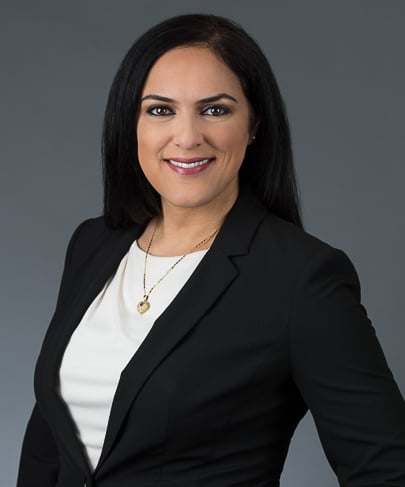Survival in the Immigration Culture of Delay and Social Media Mining - Adjustment Interviews
Click “Subscribe Now” to get attorney insights on the latest developments in a range of services and industries.
Issue:
With the recent change by U.S. Citizenship and Immigration Services (USCIS) to mandate in-person interviews for employment based adjustment cases along with changes to require the review of social media and to what constitutes a misrepresentation of intent at the time of a visa application or entry to the U.S., employers must recalibrate and intensify their intake of cases, preparation of applicants, and timing considerations before any adjustment of status filing in the U.S.
Background:
On October 1, 2017, USCIS will start to phase-in interviews of the following adjustment of status cases for U.S. legal permanent residence:
- Employment based I-485 applications.
- Refugee and asylee relative I-730 petitions for beneficiaries who are in the U.S. and are trying to join a principal asylee/refugee applicant.
In the past, in-person interviews were not mandated for such adjustment of status applicants. The change was made to comply with Executive Order 13780 (Protecting the Nation From Terrorist Entry in the United States) issued on March 6, 2017 (the “EO”). Section 5 of the EO directed the Secretary of State, the Attorney General, the Secretary of Homeland Security, and the Director of National Intelligence to implement a program as part of the adjudication process to identify those who seek to enter the U.S. on a fraudulent basis, and/or who support terrorism, violent extremism, and acts of violence toward any group or class of people in the U.S.
It is important to consider this change focused on fraud detection along with the recent modification of a section1 of the Foreign Affairs Manual (FAM) used by consular officers of the Department of State (DOS) in the adjudication of visa applications. On September 1, 2017, DOS revised its guidance on how to interpret when a visa applicant may have misrepresented information in an application for a visa, which can result in a decision of inadmissibility to the U.S. under §212(a)(6)(C)(i) of the Immigration and Nationality Act, as amended (INA).
This revision basically eliminated the old 30/60/90 day rule2 regarding conduct taken by someone, which was inconsistent with his/her intent at the time of entry to the U.S. or application for a visa at a U.S. consular post. The USCIS Policy Manual addresses the application of this “rule” in Chapter 3, Part A.3 and notes that, “officers must not use Foreign Affairs Manual (FAM) guidance in a denial. Even so, it has been often been the practice of local USCIS officers to apply such guidance in decisions regarding potential misrepresentations. In addition, this rule reference has not been updated in the Policy Manual.
Now, 9 FAM 302.9-4(B)(3)(g) provides that a nonimmigrant may be found to have acted inconsistently with his or her status if within 90 days of entry the nonimmigrant:
- Engages in unauthorized employment;
- Enrolls in a course of academic study, if such study is not authorized for that nonimmigrant classification (e.g. B status);
- If in B or F status, or any other status prohibiting immigrant intent, marries a U.S. citizen or lawful permanent resident and takes up residence in the U.S; or
- Undertakes any other activity for which a change of status or an adjustment of status would be required, without the benefit of such a change or adjustment.
In these fact patterns, among others, the nonimmigrant can be presumed to have made a “willful misrepresentation” at the time of applying for the visa or at the time of entry to the U.S.” If the nonimmigrant engages in inconsistent conduct more than 90 days after entry into the U.S., the presumption of willful misrepresentation does not apply. It is critical to remember that if during the adjustment interview, the USCIS officer finds facts that provide a basis for a “reasonable belief” that the applicant misrepresented the purpose of his or her travel to the U.S. at the time of entry or at the time of the visa application, the officer could determine that the applicant made a willful misrepresentation of a material fact. This determination can subject the applicant to a denial of adjustment and a permanent ground of inadmissibility.
What must employers be ready to address?
-
USCIS is not receiving sufficient funding to staff and train employees for the increased numbers of interviews required due to this mandatory interview change. Thus, realistically the interview mandate could add many months if not years to the timeline to acquire permanent residence. USCIS provided a chart as of August 1, 2017 outlining an inventory of pending I-485 employment based cases pending at USCIS service centers as field offices. That chart reflects the following pending employment based numbers (numbers below are as of end of July 2017):
a. First Preference - 21,407 compared to a total for 2016 of 27,780.
b. Second Preference - 4,732 compared to a total for 2016 of 16,115.
c. Third Preference - 1,607 compared to a total for 2016 of 10,976. - These delays may require additional applications for travel and work authorization and extension of nonimmigrant status for H and L nonimmigrants, as applicable. In addition, new options for permanent residence may arise due to such delays.
- As to nonimmigrant visa planning to change status or apply for adjustment, each case must be reviewed in light of the new FAM provisions on misrepresentation noted. A decision must be reached whether to delay any such actions post admission.
- Consider the consular processing alternative to adjustment of status within the U.S. In some cases, shifting to a consular immigrant visa application may be a better choice.
- The increased use of social media vetting by the DOS and USCIS must also consistently be reviewed regarding the intent upon entry issue as well as the accuracy of data placed in applications or petitions for immigration benefits. Take note of the September 18 Federal Register notice of the Department of Homeland Security (DHS),which notes that as of October 18, 2017 that even relatives of those receiving benefits under the INA as well as U.S. legal permanent residents and naturalized U.S. citizens records may include social media handles and aliases, associated identifiable information, and search results.
- Prepare complete documentation of status for any adjustment applicant to show compliance with status related to adjustment eligibility.
The takeaways for review are:
- Legal counsel should be considered strongly for in person interviews and for stringent vetting in advance before choosing the adjustment path.
- An applicant’s social media should be vetted for contradictory information related to adjustment eligibility and qualifications as well as intent at entry to the U.S. or at the time of visa application.
- Consular processing, even with its numerous warts including consular non-reviewability, may begin to appear more attractive as expected delays in USCIS processing mount as well as errors in business based adjudications.
- Based on the revision to material misrepresentation at entry policy, counsel may recommend further delays or changes in processing options for cases.
Update from September 28, 2017 Call with USCIS Ombudsman
USCIS in the USCIS Ombudsman stakeholder call held on September 28, 2017 stated that for Fiscal Year 2018, USCIS will split the task of phasing in in-person adjustment interviews for employment based cases between USCIS service center operations (SCOPs) and USCIS field offices. For I-485 filings before March 6, the cases will continue to be processed by SCOPs and will not be subject to a mandatory in person interview, but instead may be required on a case by case basis to be interviewed.
For I-485 filings submitted to USCIS on or after March 6, 2017, the USCIS field offices will process the cases and the National Benefits Center (NBC) will schedule appointments for the mandated interviews and determine if the documentation received is sufficient. Interviews can be waived for dependents under 14 years of age.
During the in person interviews, USCIS officers are not supposed to readjudicate the underlying I-140 petition, but they will focus on the applicant’s background and eligibility for adjustment including the review of education and experience documents as well as maintenance of status evidence. As to dependents, they must prove the relationship to the principal applicant and the bonafides of such relationship.
1 9 FAM 302.9-4(B)(3)(g) and (h).
2 Including complete content for historical reference. 9 FAM 40.63 N4.7 Applying the 30/60 Day Rule (CT:VISA-2255; 02-18-2015)
a. In determining whether a misrepresentation has been made, some of the most difficult questions arise from cases involving aliens in the United States who conduct themselves in a manner inconsistent with representations they made to the consular officers concerning their intentions at the time of visa application or to immigration officers when applying for admission. Such cases occur most frequently with respect to aliens who, after having obtained visas as nonimmigrants, either:
(1) Apply for adjustment of status to permanent resident; or
(2) Fail to maintain their nonimmigrant status (for example, by engaging in employment without authorization by DHS).
b. To address this problem, the Department developed the 30/60-day rule. This rule is intended to facilitate adjudication of these types of cases consistent with the statutory mandates.
c. Aliens who apply for adjustment or change of status pursuant to the INA are within the jurisdiction of the United States Citizenship and Immigration Services (USCIS) unless the application is abandoned upon the departure of the alien from the United States. If you become aware of derogatory information indicating that an alien who has applied to USCIS to adjust to immigrant status or change nonimmigrant status in the United States may have misrepresented his or her intentions to you at the time of visa application or to the immigration officer at the port of entry, you should bring the derogatory information to the attention of the appropriate USCIS office that has jurisdiction over the adjustment or change of status application. Do not request an advisory opinion from the Advisory Opinions Division (CA/VO/L/A) in these cases, because it would not be binding on USCIS.
d. With respect to the second category referred to above, nonimmigrant visa holders who maintain their nonimmigrant status, the fact that an alien’s subsequent actions are other than as stated at the time of visa application or admission does not necessarily prove that the alien’s intentions were misrepresented at the time of application or entry. You should recognize that the precise circumstances under which the change in activities has an important bearing on whether a knowing and willful misrepresentation was made. The existence of a misrepresentation must therefore be clearly and factually established by direct or circumstantial evidence sufficient to meet the “reason to believe” standard. Although indeed more flexible than the judicial “beyond reasonable doubt” standard demanded for a conviction in court, a “reason to believe” standard requires that a probability exists, supported by evidence which goes beyond mere suspicion.
9 FAM 40.63 N4.7-2 Inconsistent Conduct Within 30 Days of Entry(CT:VISA-998; 08-26-2008) If an alien violates his or her nonimmigrant status in a manner described in 9 FAM 40.63 N4.7-1 within 30 days of entry, you may presume that the applicant misrepresented his or her intention in seeking a visa or entry.
9 FAM 40.63 N4.7-3 After 30 Days But Within 60 Days (CT:VISA-2255; 02-18-2015) If an alien initiates such violation of status more than 30 days but less than 60 days after entry into the United States, no presumption of misrepresentation arises. However, if the facts in the case give you reasonable belief that the alien misrepresented his or her intent, then you must give the alien the opportunity to present countervailing evidence. If you do not find such evidence to be persuasive, you must request an AO from CA/VO/L/A. (See 9 FAM 40.63 N7.2.)
9 FAM 40.63 N4.7-4 After 60 Days (CT:VISA-2255; 02-18-2015) If an alien violates his or her nonimmigrant status more than 60 days after admission into the United States, the Department does not consider such conduct to constitute a basis for an INA 212(a)(6)(
This client alert is published by Dickinson Wright PLLC to inform our clients and friends of important developments in the field of immigration. The content is informational only and does not constitute legal or professional advice. We encourage you to consult a Dickinson Wright attorney if you have specific questions or concerns relating to any of the topics covered here.
DW Immigration: Global Mobility with a Personal Touch!
FOR MORE INFORMATION CONTACT:
Kathleen Campbell Walker is a Member in Dickinson Wright’s El Paso office. She can be reached at 915.541.9360 or kwalker@dickinsonwright.com.
Lisa D. Duran is a Member in Dickinson Wright’s Phoenix office. She can be reached at 602.285.5032 or lduran@dickinsonwright.com.
Elise S. Levasseur is a Member in Dickinson Wright’s Troy office. She can be reached at 248.433.7520 or elevasseur@dickinsonwright.com.
Kevin J. Weber is a Partner in Dickinson Wright’s Toronto office. He can be reached at 416.367.0899 or kweber@dickinsonwright.com.
Christian S. Allen is Of Counsel in Dickinson Wright’s Troy office. He can be reached at 248.433.7299 or callen@dickinsonwright.com.
Heather L. Frayre is Of Counsel in Dickinson Wright’s El Paso office. She can be reached at 915.541.9370 or hfrayre@dickinsonwright.com.
Suzanne K. Sukkar is Of Counsel in Dickinson Wright’s Ann Arbor office. She can be reached at 734.623.1694 or ssukkar@dickinsonwright.com.
If you would like a printable version of this Immigration alert, click here.
Related Practices
Contacts
Recent Insights
- Industry Alerts New USCIS Regulations To Retain High-Skilled Nonimmigrant Workers
- Industry Alerts Form I-9 Alert - USCIS Designates I-94s with New Admission Codes For E and L Spouses as List C Documents... What?
- Industry Alerts Nonimmigrant and Immigrant Visa Processing Halted by Presidential Proclamation - Effective June 24 for Certain Nonimmigrants
- March 31, 2025 Media Mentions Kathleen Campbell Walker was recently quoted in The Wall Street Journal article, "Border Agents Use More Aggressive Tactics to Question Visa Holders, Tourists."
- March 11, 2025 Media Mentions Kathleen Campbell Walker was recently quoted in the Newsweek article, “What to Know About the H-1B Program: Pros, Cons and Hiring Alternatives.”
- March 11, 2025 In the News Three Dickinson Wright Lawyers Recognized in Chambers Global Guide 2025
- March 03, 2025 Media Mentions Kathleen Campbell Walker was recently quoted in the Snopes article, “Unpacking Trump Admin's Claim That 'All' Undocumented Immigrants Are Criminals.”
- February 04, 2025 Industry Alerts Protecting Students and Schools: Guidance on Federal Agent Presence
- January 28, 2025 Media Mentions Najah Allaham’s article titled “International talent as a solution for hospitality staffing” was recently published by Today’s Hotelier.





